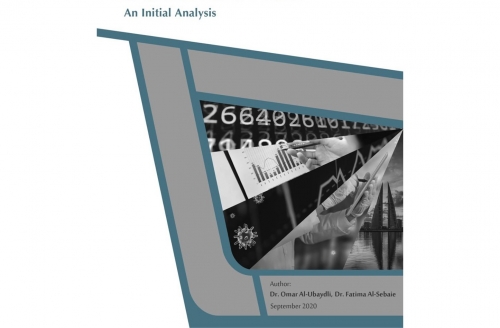A partial recovery
TDT | Manama
A partial economic recovery was realised by June 2020 in the Kingdom, according to a reported published by the Bahrain Centre for Strategic, International and Energy Studies (Derasat). The report was part of Derasat’s partnership with the UN Development Programme (UNDP) Bahrain to study the socio-economic impact of the coronavirus (COVID-19) pandemic on the country.
It examined data on the number and value of financial transactions in the Kingdom for the period from January 2019 to June 2020, aiming to analyze the impact of COVID-19 on various aspects of consumer behaviour. This includes the pandemic’s effect on overall purchases, purchases per sector, consumer prices, and changes to various payment methods.
The recovery came after a considerable fall in point-of-sales transactions, attributed to self- and legally-imposed social-distancing measures, which led to restructuring household consumption patterns, promoting household-based consumption such as home-cooked meals, furniture, and telecommunications services, at the expense of external consumption of goods and services such as travel, hotels, and clothes.
A notable observation was people’s preference to shop in department stores and large supermarkets, for convenience and a perceived higher level of safety. Price indices demonstrated the changing demand patterns, where prices increased in sectors that witnessed demand and vice versa. The overall consumer price index fell along with overall demand.
The pandemic also brought profound changes to household consumer baskets. Residents of Bahrain shifted from cash to mobile contactless payments out of necessity during the closure of stores and based on the common view of being less susceptible to contracting the virus. Despite this shift, debit cards and cash remained high, and the contribution of e-wallets was still minor.
In the long term, with the continuous shift to e-wallets, banks, and fintech companies should provide highly accessible and flexible mobile-payment services, combined with efforts to raise consumer awareness of the benefits of mobile e-payment methods to encourage their usage more frequently, according to the report.
Notably, the report was an initial analysis within a more comprehensive study, conducted through a partnership between Derasat and the UNDP Bahrain. The report was prepared by, Derasat research director Dr. Omar Al Ubaydli and research fellow Dr Fatima Al Sebaie, with data provided by the Central Bank of Bahrain.
Related Posts

